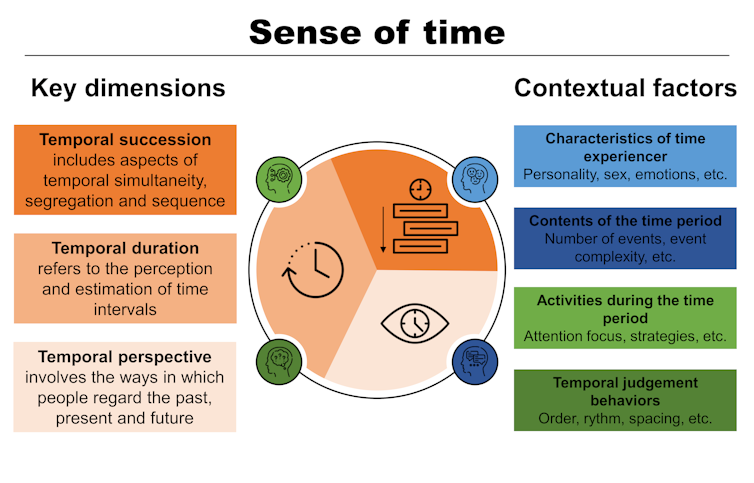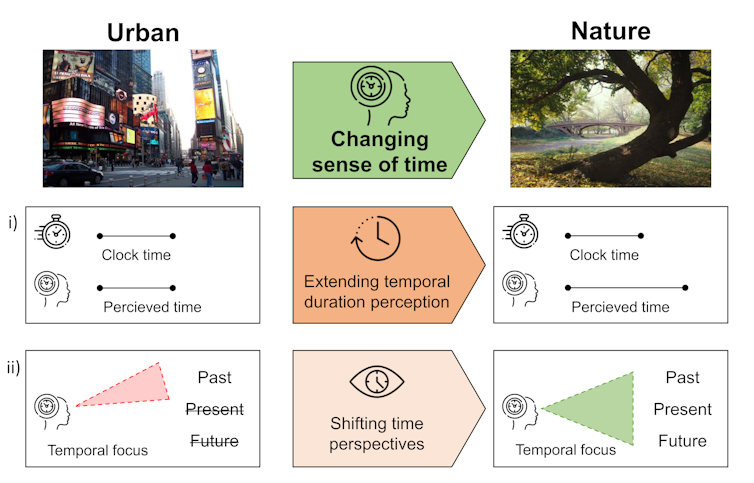“How did it get so late so soon?” ― Dr. Seuss
Time is of the essence when contemplating a world that is becoming increasingly competitive. Contemporary lifestyles have been accelerated to a frenetic, sometimes overwhelming pace by notions of productivity and timeliness, and our reliance on technology is not providing much assistance. Time seems to be becoming more ephemeral as the timepiece continues to dominate the rhythm of life. Hours, days, and even weeks can seem to pass in the flash of an eye in metropolitan areas, where this phenomenon is particularly pronounced.
In fact, a growing number of individuals are expressing that they are perpetually pressed for time. The manner in which individuals utilize and perceive time is the source of these sentiments of “time scarcity.” The availability of leisure time for individuals to engage in additional activities is consistently diminished by extended work periods. Nevertheless, the psychological toll of sustaining hectic schedules in densely populated, dynamic, and boisterous urban settings can also influence our perception of time.
In a recent publication, I put forth the notion that the perceptions of time scarcity that are becoming increasingly prevalent in modern urban lifestyles could be alleviated by exposure to nature. This phenomenon is the result of the subjectivity of human time perception and its vulnerability to the influence of our surroundings and experiences.
The subjective perception of time
Three fundamental dimensions comprise our perception of time, or human time perception. One of these is temporal succession, which pertains to our understanding of the order and overlap of various events. For instance, while the activation of a light switch and its subsequent manifestation may appear to occur simultaneously, the human mind is capable of recognizing the sequential order of these events, which aids in its understanding of the environment.
An additional factor is temporal duration, which refers to the manner in which we perceive and estimate the duration of an event. For instance, an afternoon spent at the tax office may appear to elapse indefinitely, while the same amount of time spent with friends may appear to pass rapidly. Our intricate perception of time is illustrated by popular expressions such as “time stands still” and “time flies when you are having fun.”
The third dimension is temporal perspective, which is concerned with our understanding of the past, present, and future. The human species is the only species that possesses the capacity to cognitively “travel through time” and focus on representations of the past, present, and future. Maintaining a dynamic and balanced time perspective is indicative of psychological well-being, as the majority of individuals have a natural inclination to either dwell on the past or concentrate on the future.

A schematic representation of the factors that affect the human perception of time.
Humans receive assistance from these dimensions in their understanding of the passage of time. Nevertheless, our actions, the environment, and our characteristics may all significantly influence our perception of them over a specific period of time. The perception of time endures substantial changes, as evidenced by scenarios such as being preoccupied with work, experiencing traffic congestion, or undergoing an excruciating dental procedure.
Conversely, interactions with nature have the capacity to enhance our emotional, physical, and mental health; this influence also extends to our temporal perception.
The manner in which human perception of time is influenced by the experiences of nature
Psychological investigations have identified a minimum of two positive effects of natural surroundings on human time perception.
One of these entails the enhancement of our perception of temporal duration. For instance, according to one study, individuals tend to overestimate the duration of their walks in urban or natural environments, but not in urban settings. In other words, the passage of time appears to occur at a slower pace in natural settings than in urban ones.

Two mechanisms are at play in the way that nature experiences affect our perception of time.
An additional manner in which nature experiences can influence our understanding of time is by promoting a shift in perspective. One experiment involved participants experiencing a brief period of silence, either indoors or outdoors. Subsequently, they were questioned regarding the impact of this experience on their temporal orientation toward the past, present, and future. Individuals who were exposed to the natural environment reported experiencing a greater sense of presentness and less preoccupation with the past.
Similarly, other studies have documented similar results, suggesting that exposure to nature can help to change our perspective on time and cultivate a more optimistic outlook on the present.
The notion that nature experiences can also help individuals improve their relationship with time is a novel concept that offers a fresh perspective on the importance of nature to human welfare, despite the substantial evidence that supports the notion that they offer a variety of physical and mental advantages.
We have the potential to create more sustainable and healthful urban environments, including cities, by enhancing our understanding of the ways in which nature influences our perception of time.
